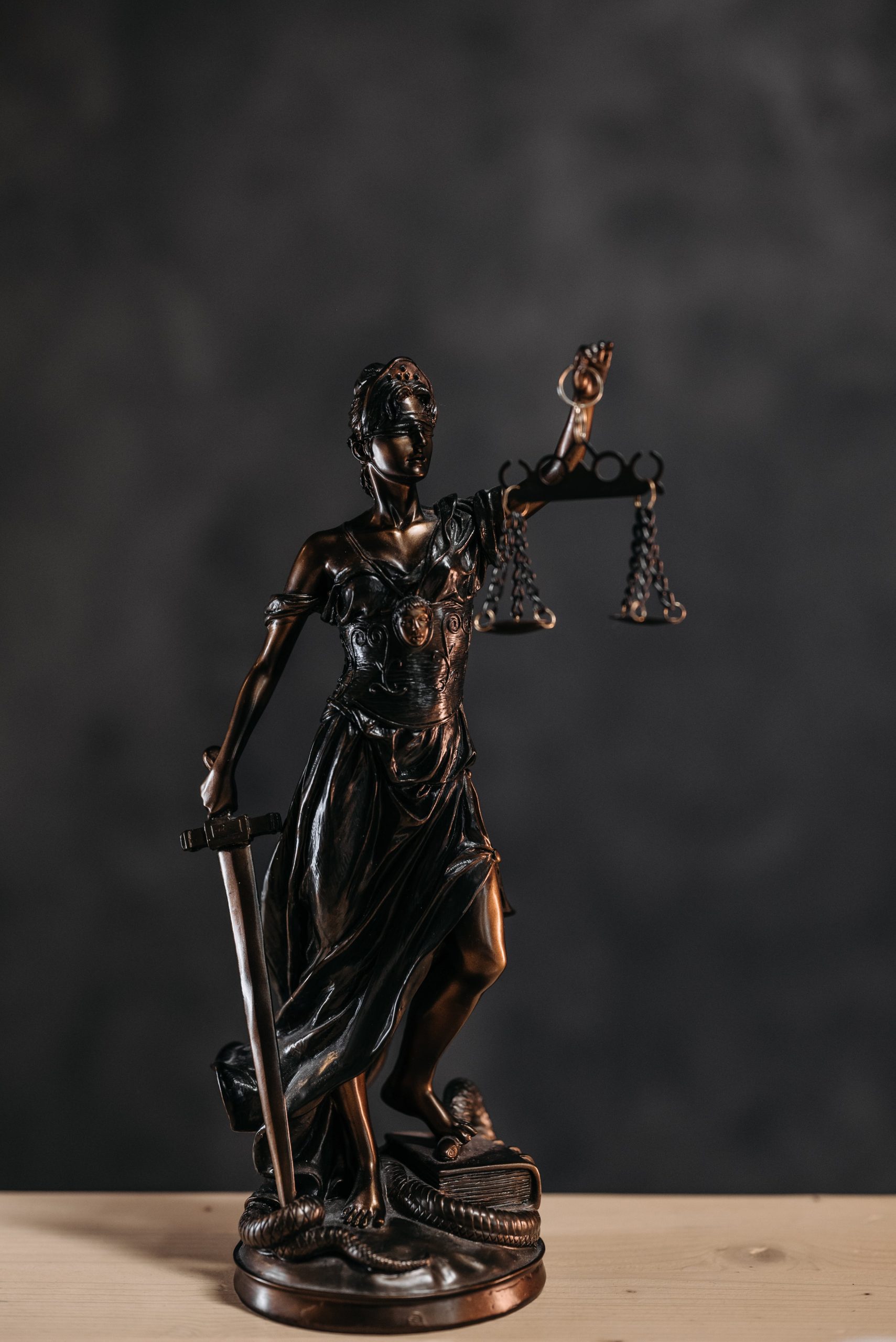Are you facing a challenging situation involving guardianship in Ogden, Utah? Look no further than the expertise of Guardianship Lawyer Jeremy Eveland. With years of experience in handling complex guardianship cases, Jeremy Eveland is here to offer his comprehensive and exhaustive knowledge on the subject. Whether you are seeking legal guidance for securing guardianship over a loved one or need assistance in navigating the intricacies of the guardianship process, Jeremy Eveland is dedicated to ensuring that your rights and the best interests of your family are protected. Don’t hesitate to reach out for a consultation and let Jeremy Eveland guide you through this legal journey with compassion and expertise.

What is Guardianship?
Defining Guardianship
Guardianship is a legal arrangement in which an individual, known as the guardian, is appointed by the court to make decisions and provide care for someone who is unable to do so themselves. This person is referred to as the ward and may be a minor child, an incapacitated adult, or an individual with special needs. The guardian takes on the responsibility of ensuring the well-being and best interests of the ward.
Why is Guardianship Necessary?
Guardianship is necessary when there is a need to protect and provide for the needs of individuals who are unable to make decisions or care for themselves effectively. It ensures that the ward receives the necessary care, support, and guidance required for their physical, emotional, and financial well-being. Guardianship offers a legal framework to address the challenges faced by those who cannot advocate for themselves.
Different Types of Guardianship
There are various types of guardianships that can be established based on the circumstances and needs of the ward. These include guardianship of minor children, guardianship of incapacitated adults, and guardianship of individuals with special needs. Each type of guardianship has its own set of requirements and responsibilities.
When is Guardianship Needed?
Minor Children
Guardianship of minor children is needed when parents are unable to care for their children. This may occur due to a variety of reasons, such as death, incapacitation, or parental abandonment. In such cases, a guardian can step in to provide a stable and nurturing environment for the child, ensuring their safety, education, and overall well-being.
Incapacitated Adults
Guardianship of incapacitated adults becomes necessary when an individual is no longer capable of making informed decisions due to physical or mental impairment. This could be a result of a severe illness, injury, or cognitive impairment. In these situations, a guardian is appointed to make decisions on behalf of the adult, including medical, financial, and personal matters.
Special Needs Individuals
Guardianship of individuals with special needs is crucial to ensure that proper care and support are provided throughout their lives. These individuals may have developmental disabilities or mental illnesses that require ongoing assistance and supervision. By appointing a guardian, the court ensures that the individual’s unique needs are adequately addressed and that they have access to necessary services and resources.
The Role of a Guardianship Lawyer
Understanding the Legal Requirements
A guardianship lawyer plays a crucial role in guiding individuals through the complex legal requirements associated with establishing guardianship. They are well-versed in the laws and regulations specific to guardianship cases in their jurisdiction. They ensure that all necessary legal steps are followed and that the best interests of the ward are represented.
Guiding You through the Process
Navigating the guardianship process can be overwhelming and confusing. A skilled guardianship lawyer will provide guidance and support at every step, ensuring that you understand your rights and responsibilities. They will explain the legal procedures, help you gather the necessary documentation, and prepare you for court hearings.
Advocating for Your Rights
A guardianship lawyer will serve as your advocate, fighting for your rights and the well-being of the ward. They will gather evidence, present compelling arguments, and represent your case in court proceedings. Their expertise and experience give them the ability to negotiate effectively and work towards the best possible outcome for you and the ward.
Choosing the Right Guardianship Lawyer
Experience in Guardianship Cases
When selecting a guardianship lawyer, it is crucial to consider their experience in handling similar cases. Look for a lawyer who has successfully handled guardianship matters, preferably with a specialization in this area of law. Their expertise will ensure that they are familiar with the nuances and complexities that may arise during the guardianship process.
Knowledge of Utah Laws
Guardianship laws vary from state to state. It is essential to choose a lawyer who is well-versed in the specific laws and regulations of Utah. Their familiarity with the local legal landscape, court procedures, and precedents will help streamline the guardianship process and increase the likelihood of a favorable outcome.
Good Communication Skills
Effective communication is key in any legal matter, and guardianship cases are no exception. Choose a lawyer who demonstrates excellent communication skills, both in listening to your concerns and explaining complex legal concepts in plain language. Open and transparent communication is vital to building a strong attorney-client relationship and ensuring that your needs are met throughout the process.

Process of Establishing Guardianship
Initiating the Guardianship Petition
The process of establishing guardianship typically begins with filing a petition in court. This involves submitting the necessary legal documents and supporting evidence to initiate the proceedings. A guardianship lawyer will guide you through this process, ensuring that all required information is included in the petition and that it is filed correctly.
Filing and Documentation
Once the petition is filed, various documents and forms need to be prepared and submitted to the court. This may include medical assessments, financial records, background checks, and any other relevant information. A guardianship lawyer will assist you in gathering and organizing these documents, ensuring that they are complete and admissible in court.
Attending Court Hearings
Throughout the guardianship process, there may be several court hearings where the judge reviews the case and makes determinations. It is essential to have a guardianship lawyer by your side during these hearings to represent your interests and present your case effectively. They will prepare you for the hearings, accompany you to court, and advocate on your behalf.
Responsibilities and Duties of a Guardian
Care and Custody of the Ward
One of the primary responsibilities of a guardian is to provide care and custody for the ward. This includes ensuring their physical and emotional well-being, providing a safe and nurturing environment, and meeting their daily needs. The guardian acts as a substitute decision-maker, making choices in the best interest of the ward.
Making Medical Decisions
As a guardian, you will have the authority to make medical decisions on behalf of the ward. This includes consenting to medical treatments, surgeries, medications, and determining the appropriate healthcare professionals to consult. It is imperative to consult and consider the opinions of healthcare providers when making these decisions, to ensure the ward’s best interests are upheld.
Managing Financial Affairs
In some guardianship cases, the guardian may also be responsible for managing the ward’s financial affairs. This can include budgeting, paying bills, managing investments, and ensuring the financial resources are used appropriately to meet the ward’s needs. The guardian must keep accurate records of all financial transactions and provide regular accountings as required by the court.
Termination of Guardianship
When Guardianship is No Longer Required
Guardianship may be terminated when the circumstances that necessitated it no longer exist. For example, if a minor child reaches the age of majority or the incapacitated adult regains the ability to make decisions for themselves. In such cases, the guardian or interested parties can petition the court for termination of guardianship.
Challenges to Guardianship Termination
In some instances, there may be disagreement or challenges to the termination of guardianship. Interested parties may believe that the ward still requires a guardian or that the termination would not be in their best interests. These challenges can prolong the termination process and may require legal representation to address the concerns raised.
Court Approval for Termination
To terminate guardianship, court approval is typically required. The court will review the case, consider any objections or concerns raised, and make a determination based on the best interests of the ward. A guardianship lawyer can guide you through the termination process, represent your case to the court, and work towards a favorable outcome.
Guardianship vs. Conservatorship
Guardianship: Care and Custody
Guardianship primarily deals with the care and custody of individuals who are unable to advocate for themselves effectively. The guardian is responsible for ensuring the ward’s well-being, making decisions related to their daily life, healthcare, and education.
Conservatorship: Financial Management
Conservatorship, on the other hand, focuses on the financial management and protection of assets for those who cannot manage their own finances. A conservator is appointed to handle the financial affairs, investments, and property of the ward, ensuring that their resources are used appropriately for their benefit.
When Both Guardianship and Conservatorship are Required
In some cases, both guardianship and conservatorship may be necessary to meet the comprehensive needs of the ward. For instance, an incapacitated adult may require a guardian to make healthcare decisions and manage their daily care, while also needing a conservator to handle their financial matters. A guardianship lawyer can assist in determining the most appropriate legal arrangements based on the individual circumstances.

Maintaining a Strong Case
Collecting Evidence and Documentation
Building a strong guardianship case requires thorough preparation and a solid foundation of evidence and documentation. A guardianship lawyer will guide you in gathering the necessary documents, such as medical records, financial statements, and character references. They will help you organize and present this evidence effectively to demonstrate the need for guardianship.
Working with Social Services
Collaboration with social services can be crucial in guardianship cases, especially when dealing with minor children or special needs individuals. Social workers can provide valuable insights, assessments, and recommendations to support the need for guardianship. A guardianship lawyer will work in conjunction with social services to ensure a comprehensive and persuasive case.
Seeking Professional Evaluations
In many guardianship cases, professional evaluations may be necessary to assess the mental or physical capacity of the ward. These evaluations can provide essential information to support the need for guardianship. A guardianship lawyer can help identify the appropriate professionals, coordinate the evaluations, and ensure that the results are presented effectively in court.
The Cost of Guardianship
Understanding Legal Fees
Establishing guardianship can involve legal fees, and it is important to understand the cost factors associated with the process. Legal fees typically depend on the complexity of the case, the attorney’s experience, and the time spent on the matter. It is crucial to discuss and clarify the fee structure with your guardianship lawyer before proceeding.
Factors Affecting the Cost
Several factors can impact the cost of guardianship. These include the complexity of the case, any challenges or disputes raised, the need for professional evaluations, and the number of court hearings required. It is essential to discuss these factors with your guardianship lawyer to get a clear understanding of the potential costs involved.
Importance of Financial Planning
Considering the potential costs associated with guardianship, it is crucial to engage in financial planning to ensure you are prepared. This may include setting aside funds or exploring available resources to cover legal fees, ongoing expenses for the ward’s care, and any unexpected costs that may arise throughout the guardianship process. Your guardianship lawyer can provide guidance on financial planning strategies to ease the burden associated with guardianship.
In conclusion, guardianship plays a vital role in protecting and providing for those who are unable to care for themselves effectively. Whether it involves minor children, incapacitated adults, or individuals with special needs, the establishment of guardianship requires a thorough understanding of the legal process and the responsibilities involved. By working with a knowledgeable and experienced guardianship lawyer, you can navigate the complexities of the legal system, advocate for the best interests of the ward, and ensure their well-being and future are secure.


